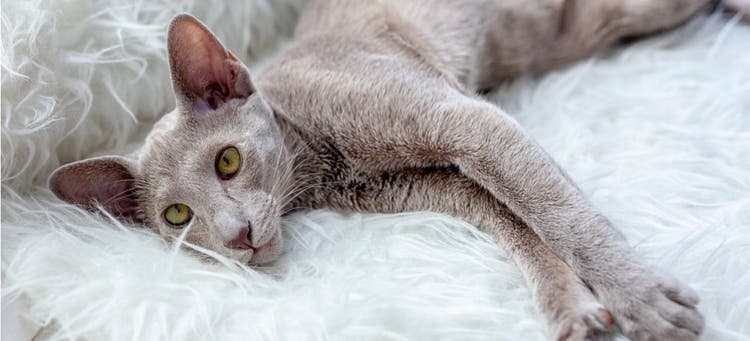
Are Hairless Cats Hypoallergenic?
1 in 10 Americans suffer from pet allergies and cats are twice as likely to cause unpleasant symptoms for their owners. What causes these allergic reactions? It’s not just the feline coat that leaves people dealing with runny noses and watery eyes. Cats of all types consistently shed proteins (including Fel d 1, Fel d 2, and so on) in their saliva, urine, and dead skin. All of these can cause flare-ups in vulnerable individuals and make cat ownership difficult or impossible for many.
Are Hairless Cats Hypoallergenic?
No. As mentioned, whether cats have long, bushy coats or little hair to speak of, they regularly shed a collection of proteins that can affect allergy sufferers. It’s not just dander causing symptoms like itchiness, sneezing, and hives, but substances like Fel d 1. Most of this irritant comes from a cat’s saliva as well as from glands located beneath their coats. While certain breeds shed more proteins than others, any cat owner with allergies should count on contending with symptoms from time to time.
Cat Breeds for Allergy Sufferers
Balinese
This breed’s luxurious coat is just one layer deep. That means it’s pleasing to the eye and touch without presenting too many risks for owners with allergies. A single coat makes for easier grooming too.
Bengal
Bengal cats have a distinct, spotted coat and an outgoing disposition that call to mind a tiny wildcat. Prepare to play and offer affection around the clock if you’re adopting or purchasing a Bengal.
Cornish Rex
Cornish Rexes are athletic, sociable, and nearly hypoallergenic. Occasional baths can help keep the breed happy and comfortable while reducing what allergens they do introduce to the home.
Devon Rex
Playful, affectionate Devon Rexes have short, wavy coats. While these coats have three layers, don’t expect too much shedding.
Javanese
Like their relative the Balinese, these kitties have a single-layer coat that’s pleasant to pet, simple to groom, and easy on the immune system.
Oriental Shorthair
The Oriental Shorthair’s soft, fine, silky coat requires regular brushing, but pet parents won’t usually need to deal with serious allergy symptoms.
Siberian
Despite their thick, luxurious coats, Siberians aren’t an especially risky cat for feline fanciers with allergies. The breed’s saliva has fewer allergy-causing enzymes than many others.
Sphynx
The hairless Sphynx cat sheds its share of allergens, but they’re about as close to hypoallergenic as felines get. Keep in mind that no hair doesn’t mean ‘no grooming.’ Sphynx owners should make time for regular baths to keep their pet’s skin healthy and free from excess oils.
Should Allergy Sufferers Own Cats?
All cats and allergy sufferers are different. If you’re not sure how adopting or purchasing a cat will affect you, consider supporting a local organization by fostering. Acting as a pet parent for a foster kitten can provide a kind of trial opportunity, a chance to give cat ownership a try without making a full commitment. If certain breeds don’t aggravate your allergies (or you find suitable ways to alleviate symptoms), you can adopt or purchase with more confidence.